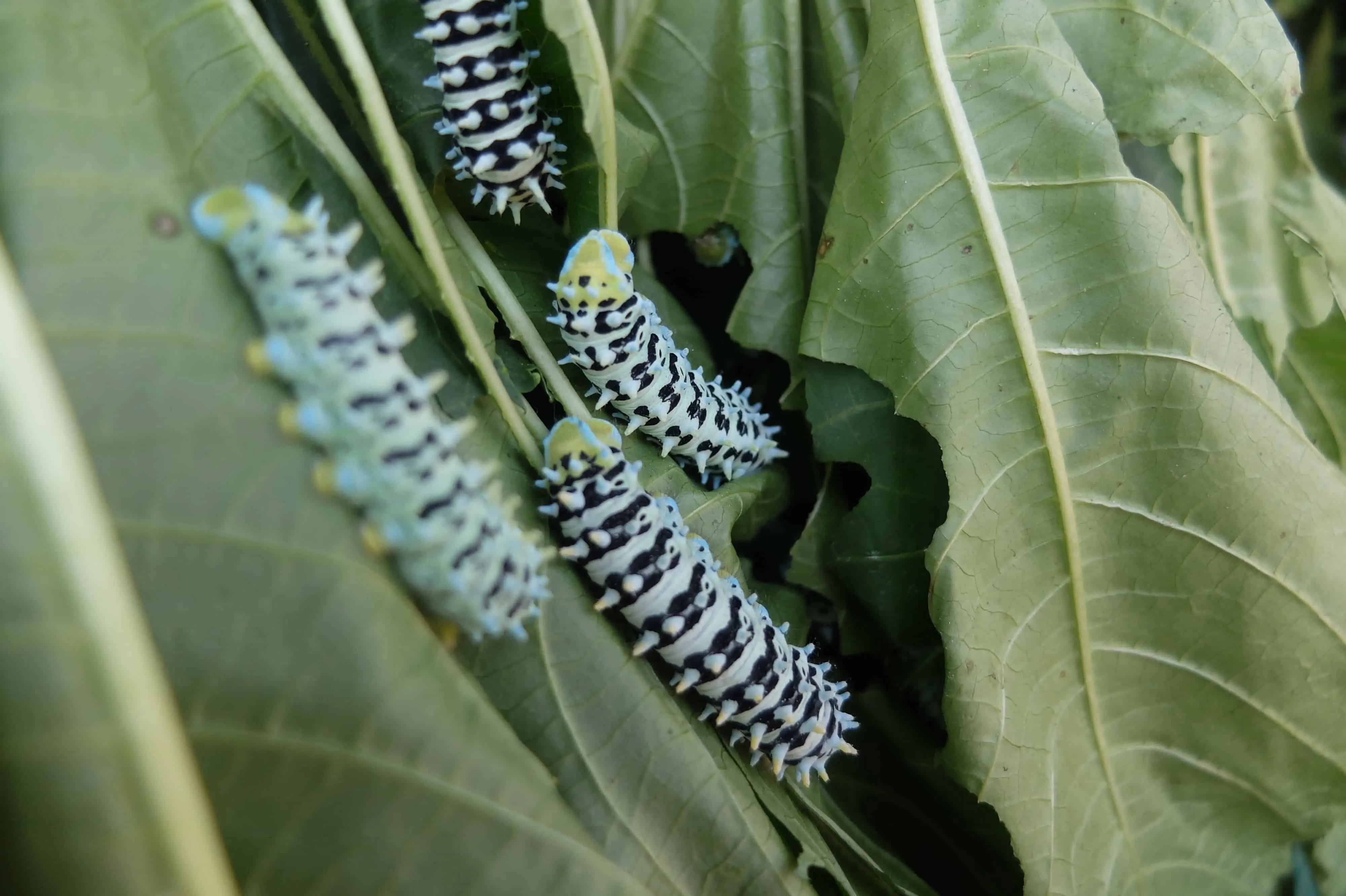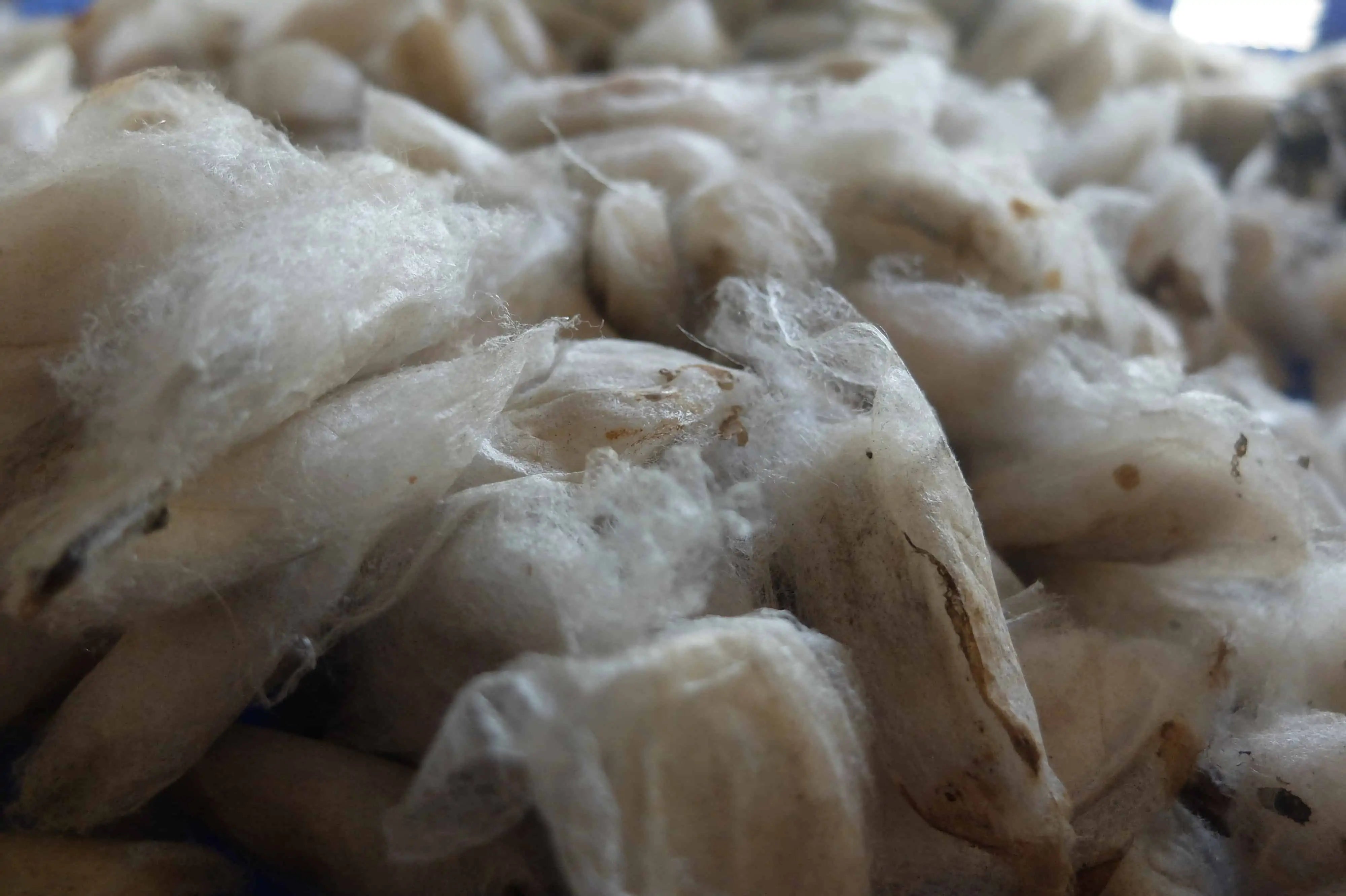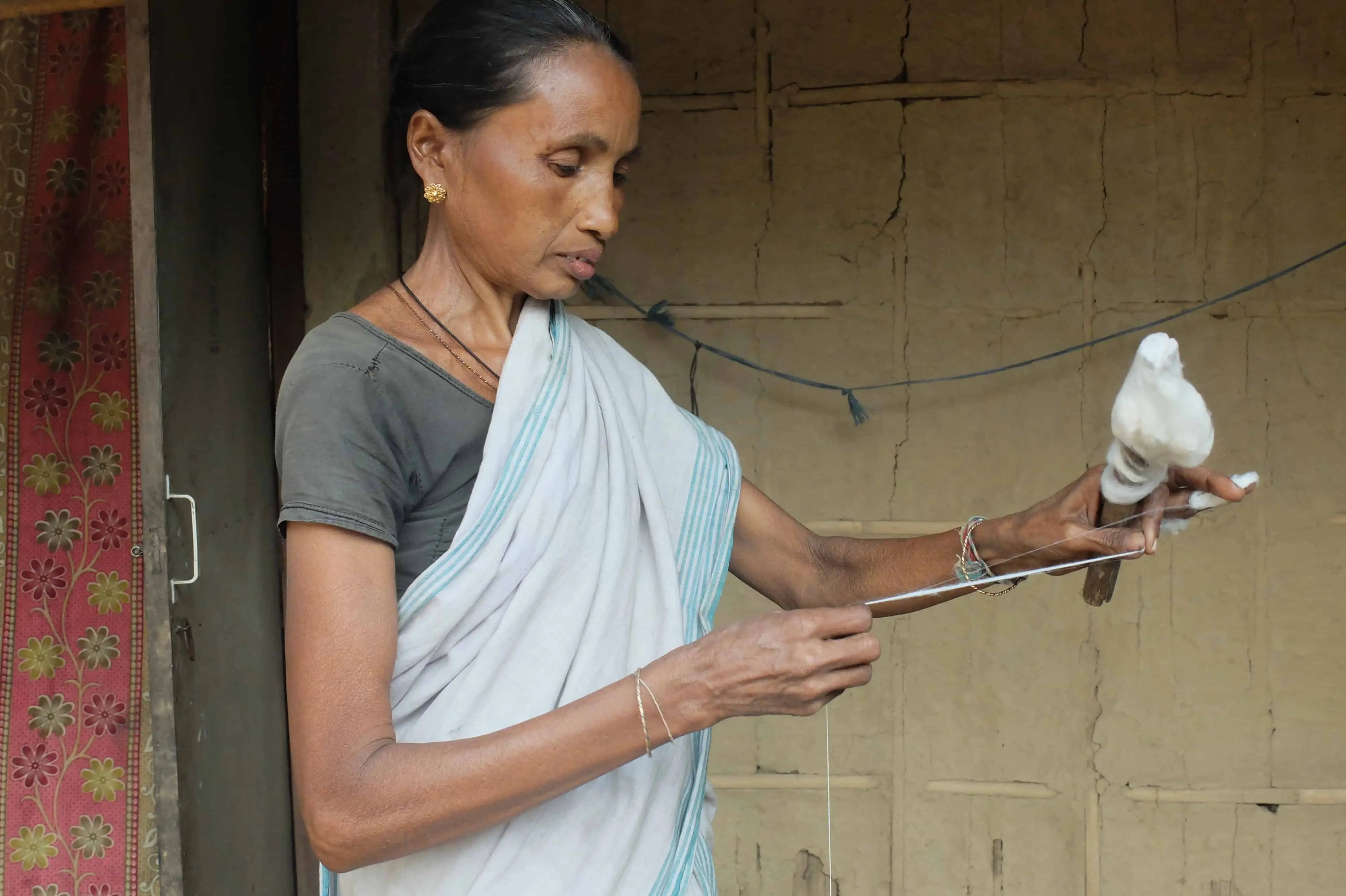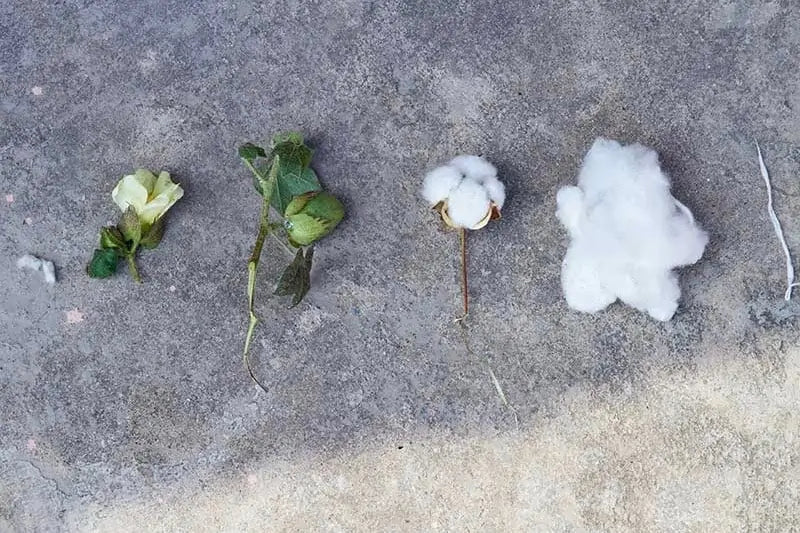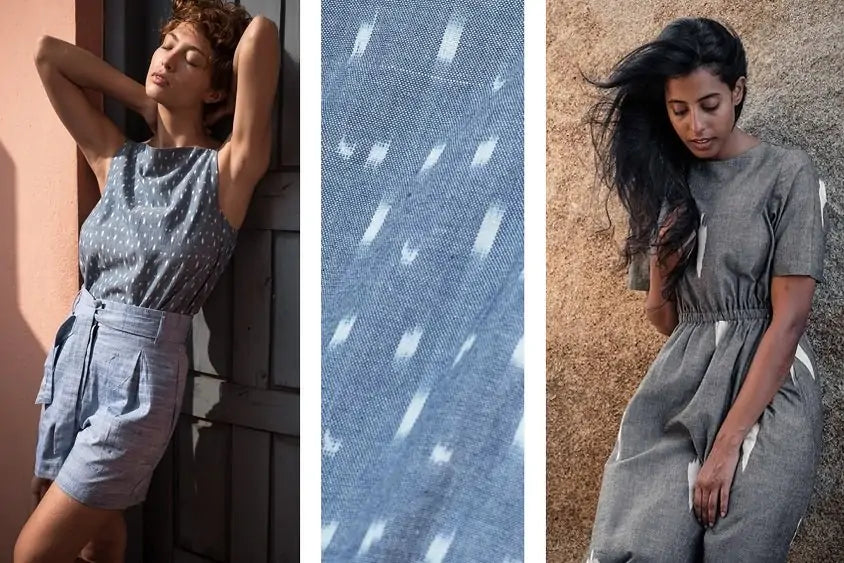Vegan or not vegan, that is the question. Topic: Peace silk
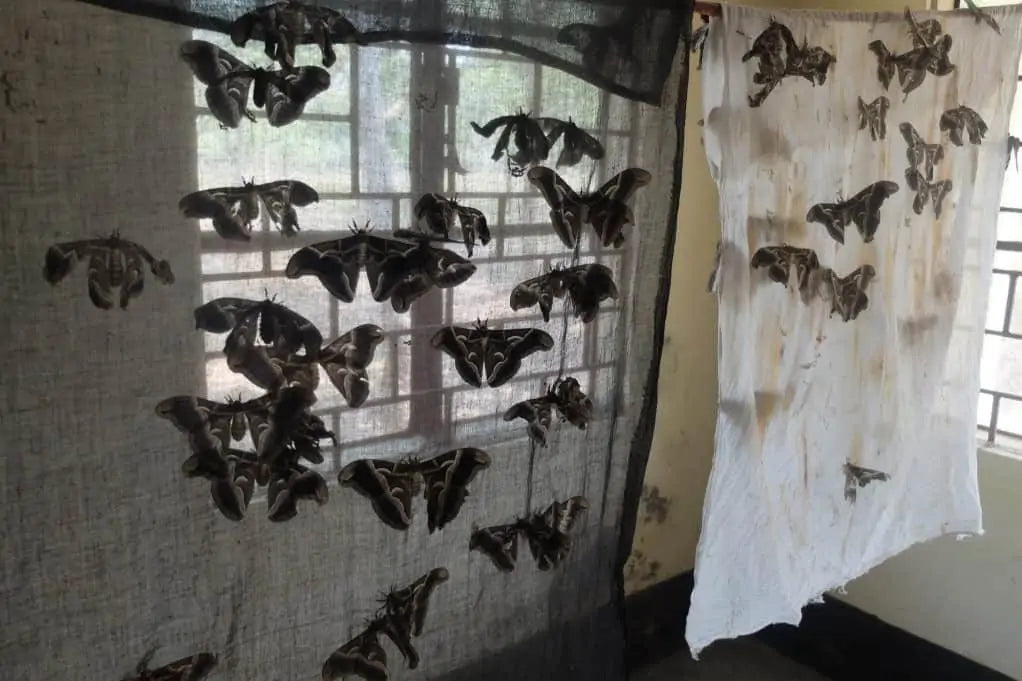
So far we have only worked with vegan materials, to be more precise, with fabrics made from 100% cotton.
That's no longer the case. This autumn, for the first time, we're using fabrics that originate from fibers produced by animals - in our case, that's sheep's wool and silk.
We would like to explain to you here why this is the case, what thoughts we had about it and what convinced us to take this step.
It is best to first look at the exact definition of the term vegan. If you look it up in the dictionary, it says: the complete avoidance of animal products
The Vegetarian Association is not quite satisfied with this and adds:
Vegan are products that are not of animal origin and in which no
– ingredients (including additives, carriers, flavourings and enzymes) or
– processing aids or
– Non-food additives used in the same manner and for the same purpose as processing aids of animal origin added or used in processed or unprocessed form.
If you talk to people who value a vegan diet or even a completely vegan lifestyle, they usually explain their decision with the suffering of animals caused by the cruelty of factory farming and its devastating effects on our environment.
We can absolutely agree with Jyotis' reasoning and it is precisely this that has led us to steer clear of animal materials in the past... until we met Ritu.
Ritu, who actually lives in Assam (you've probably heard of this beautiful state in the north-east of India in connection with its delicious tea), practically ran into our founder Jeanine about a year ago. Enthusiastic about the craft of silk weaving in his home country and on a business trip to Germany for his employer, he approached Jeanine out of the blue in a shop for eco-social fashion (the great Supermarché - without wanting to advertise too much here 😉 and asked if she had any idea who in Germany might be interested in the silk from his village.
Immediately curious, Jeanine invited him to our small office in Berlin and just a few months later our fabric expert Caro was on her way to Assam. She was immediately enthusiastic. Not only about the beautiful silk fabrics, which are all handwoven and dyed with natural colors, but also especially about the non-violent technique used to obtain them.
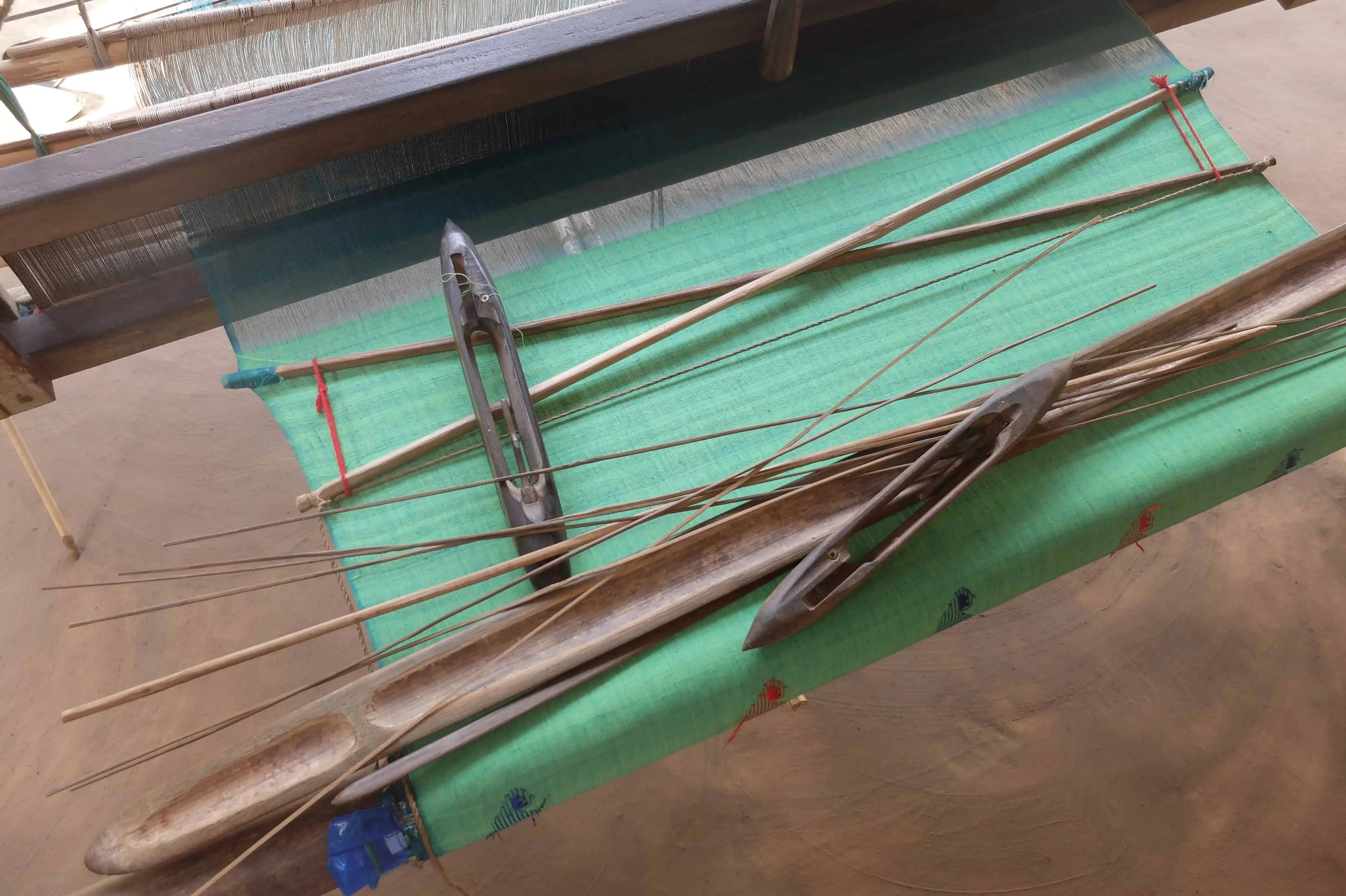
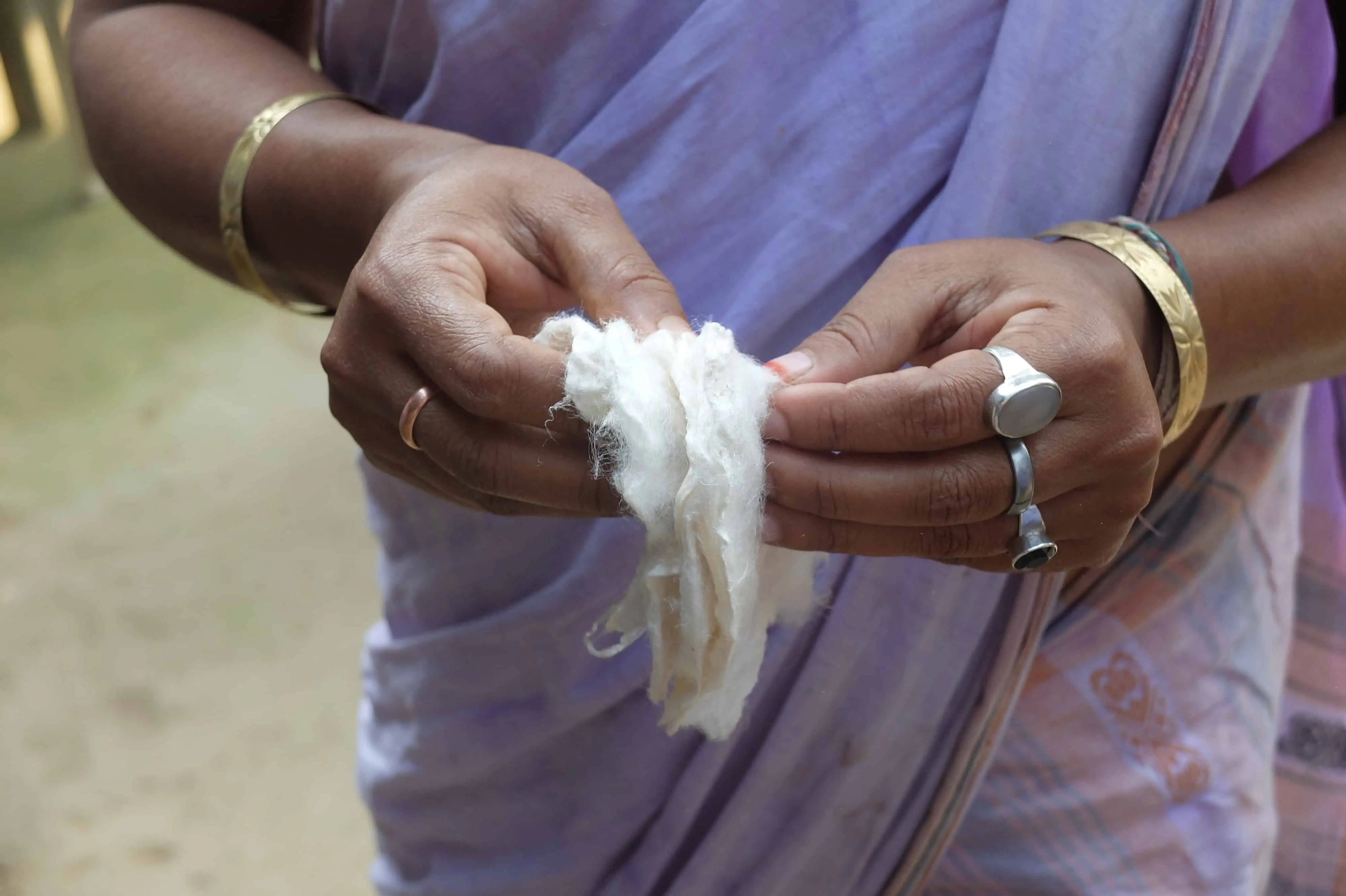
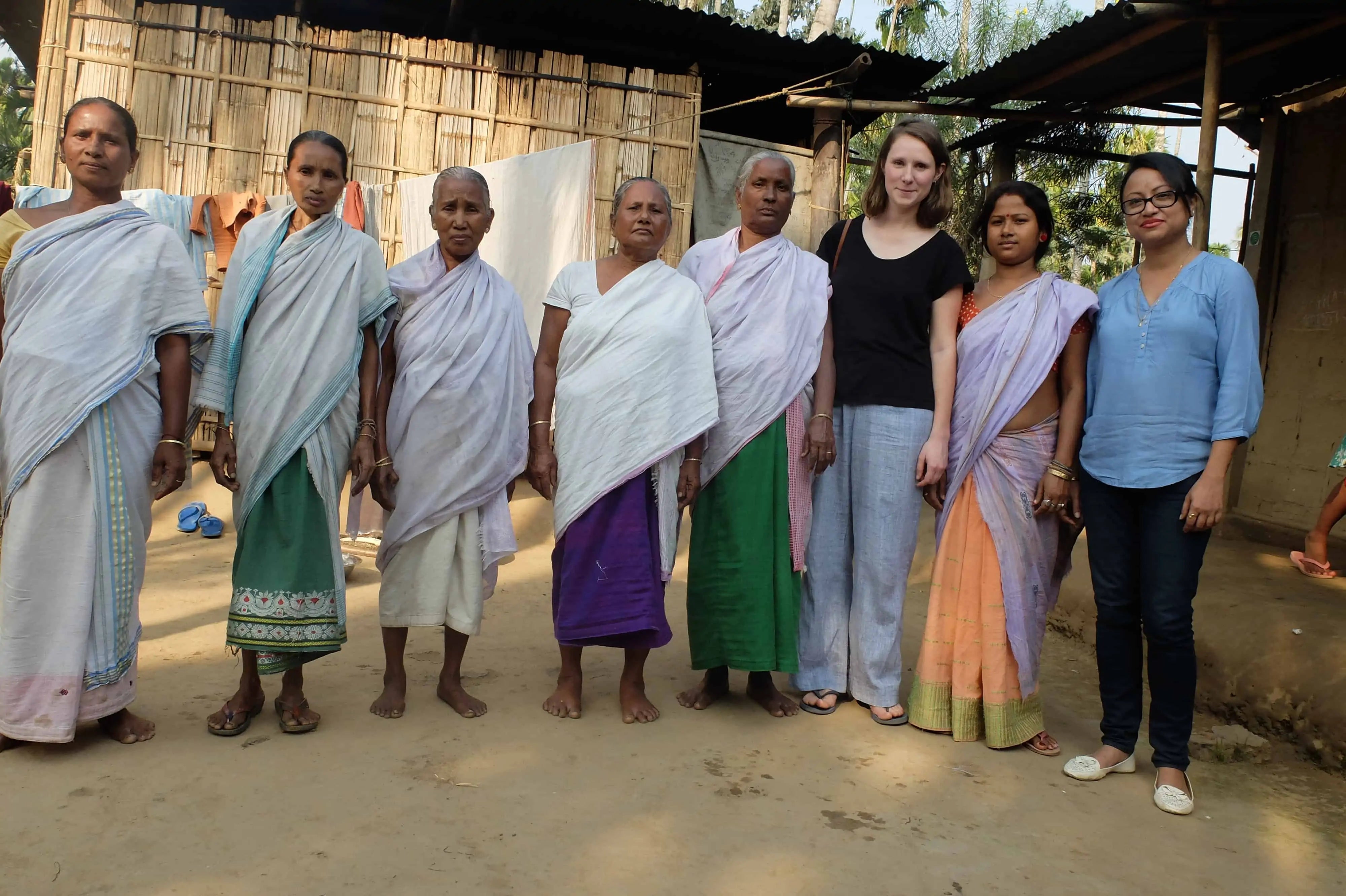
In contrast to conventional silk production, in which the pupated larvae and their cocoons are thrown into boiling water and killed, the animals leave their cocoons naturally as butterflies before they are processed into silk. In the villages around Guwahati, non-violent silk production has a long tradition; many of the people who live there produce silk fabric on the side and in small quantities for their own needs. The rubber is removed from the abandoned cocoons in natural lye made from the wood of the banana tree and then spun by hand into silk thread. The finished yarn is dyed with natural materials, such as leaves from the Mehndi bush, pomegranate or turmeric, and then woven into meter-long lengths of fabric on a hand loom, which almost everyone in the village has at home. The exclusively manual process, as well as the special type of silk “Eri” and the fact that the butterfly bites its way out of its cocoon, thus “destroying” it according to conventional understanding, are responsible for the unique, atypical structure of the fabrics.
We were convinced by this approach, even if it means that our fabrics are no longer exclusively vegan. We believe that a technology that enables the production of beautiful silk fabrics without harming any animals deserves our support. Perhaps this will encourage conventional silk producers to try the non-violent approach.
We are delighted to be able to present you our first pieces made from this wonderful silk and are very excited to hear what you think about this topic.
Oh and before we forget – you can find out more about our decision to now work with sheep’s wool and especially about its origins in our next blog post.
Your Jyotis.
